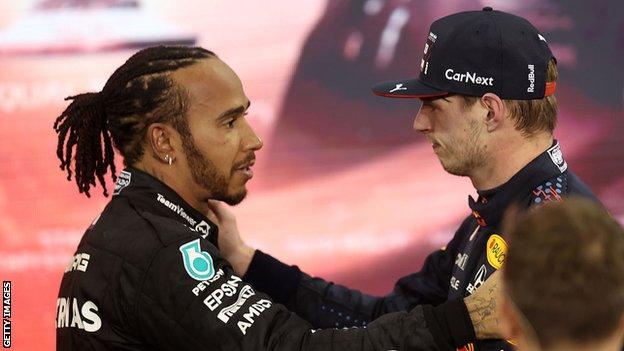For Mercedes and Formula One – actions speak so much louder words when it comes to Equality, Diversity, and Inclusion.
1 - Laying the track
2 - F1 and racism
3 - Lewis Hamilton's impact on F1's ED&I strategy
4 - The Ignite Partnership
Laying the track
F1 has enjoyed huge growth in popularity in recent years, in large thanks to the Netflix series Drive to Survive. Where the racing teams once struggled for big sponsorship to cover stratospheric costs of running a team, attracting the best talent, and delivering a competitive car, big business is now seemingly queuing up for a piece of the international exposure it offers. The British Grand Prix attracted a record crowd of over 400,000 people this year and the pit lane was littered with ‘A list’ celebrities like Tom Cruise, all keen to experience the thrill.
This level of global exposure, corporate investment, and media coverage also brings intense scrutiny. The British Grand Prix (and this weekend’s Austrian Grand Prix) was overshadowed by racism. First comments from three times world champion Nelson Piquet aimed at Sir Lewis Hamilton and then from visiting fans in Austria.
F1 and racism
F1 has an image problem, trying to shake off its reputation for being an elitist, male dominated sport, its lack of diversity and to date just one black driver. If it wants to maintain its investment, profile and alignment with the biggest brands (people and organisations!) it has to evolve quickly.
In the wake of Piquet’s comments, Formula One and teams like Redbull, Aston Martin, Ferrari and McLaren were quick to take to social media to criticise and condemn Pique’s racial and homophobic slurs - but is this enough?
Many thought not, and with that F1 needs to take more decisive action.
Lewis Hamilton's impact on F1's ED&I strategy
Unlike many F1 drivers, Lewis Hamilton comes from a humble background and upbringing in Stevenage. His family were not wealthy and his dad sacrificed everything to help him realise his dream. He has achieved his success in Formula One in spite of his background, class and ethnicity.
Maybe because of this, Hamilton has become a true champion of people he considers are overlooked by society. To date, he has donated £20m (7% of his total net worth) to his Mission 44 project to promote and bring about change to make motorsport more diverse and inclusive and especially for people from low-income and minority ethnic groups. He was recently ranked fifth in the Sunday Times' 2022 Giving List. He is in a position to make a real difference but so also is his team, Mercedes.
In 2021 Hamilton and Mercedes announced the formation of ‘Ignite’, a charitable partnership which aims to increase the representation of people from under-represented backgrounds within UK motorsport. Lewis set up The Hamilton Commission, alongside The Royal Academy of Engineering, with the aim to identify the key barriers to recruitment and progression of black people in UK motorsport and provide recommendations and actions to overcome them.
The Ignite Partnership
Hamilton and team boss at Mercedes, Toto Wolff are working to address the lack of diversity within Motorsport. Their work includes identifying and joint funding STEM-based programmes, with a focus on bridging gaps within education and motorsport careers.
 Key aims of the Ignite Partnership include:
Key aims of the Ignite Partnership include:
- Helping to broaden talent pools by supporting the development of ‘team members of tomorrow.'
- Inspiring and supporting under-represented groups in schools and universities to ensure they have opportunities to follow STEM subjects and, ultimately pursue engineering careers.
- Dedicating support towards developing meaningful career paths for under-represented groups in Motorsport.
Mercedes has recognized the huge potential talent out there that today has so few opportunities for development.
They planned to go further and take full advantage of this talent pool through the launch of the ‘Accelerate 25’ programme in 2020. With this, they aimed for at least 25% of their new starters to come from under-represented groups in 2025. They overachieved on this goal in the very first year, with 38% of new recruits fulfilling the definition. Female employees now account for 14% of the workforce, while those from ethnic minorities have doubled in just 2 years.
Their all-black livery on their car for 2020 and 2021 was no accident, it was a statement of action, designed to underline this commitment.

In summary
Formula 1 has for a long time been seen as a sport that drives innovation. Yes, for many, it is a noisy bunch of cars just racing round and round. But to be the very best there is a huge amount of research and development and genuine, ground-breaking technology that translates into our everyday use.
But now, maybe F1 is also showing the rest of the world how to convert words into action when it comes to broader social initiatives and for that both Mercedes and Lewis Hamilton deserve our respect and plaudits.
So if your own organisation faces challenges with glass ceilings; unbalanced boardrooms; a lack of appeal to younger talent from diverse backgrounds…then don’t just bemoan the fact, take a lesson from Formula 1 and make a change!
